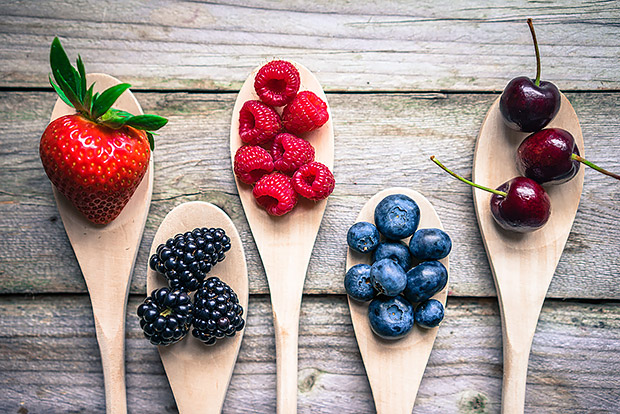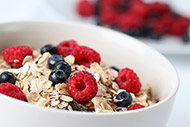
Phytonutrients, or phytochemicals, are special plant nutrients that boost health and protect against disease. While there are many classes and types of phytonutrients, you should pay special attention to a few.
Anthocyanins
Anthocyanins are flavonoids that give fruits and vegetables a deep red, blue, or purple tone. They have been linked to the prevention of heart disease and cancer and may also improve cognitive function. Anthocyanins are found in berries, red grapes, purple eggplant, and red cabbage.
Carotenoids
Carotenoids are a group of phytochemicals with antioxidant activity that fight free radicals and reduce cell damage. Carotenoids can be found in carrots, collard greens, tomatoes, pumpkins, and cantaloupe.
Catechin
Catechins are flavonols linked to a reduced risk of heart disease, stroke, and some cancers. This flavanol may also help lower blood cholesterol. Catechins are most often associated with tea but can also be found in coffee and chocolate.
Quercetin
Quercetin is a flavonoid that acts as an antioxidant with anti-inflammatory properties. Research shows it may help protect against heart disease and cancer. Its anti-inflammatory properties may also help reduce the symptoms of allergies. Quercetin is found in apples, berries, citrus fruits, onions, olive oil, and parsley.
Sulfides
Sulfides are a group of sulfur-containing compounds responsible for the pungent flavor of some foods. Research has linked these compounds to better blood pressure control and a decrease in LDL (bad) cholesterol. Sulfides are found in allium vegetables such as garlic, onions, leeks, and scallions.
Sources



 3 Healthy Lunches for Your Work Week
3 Healthy Lunches for Your Work Week
 5 Tips for Stretching Your Budget for Healthy Food
5 Tips for Stretching Your Budget for Healthy Food
 Best Ways to Reduce Added Sugar
Best Ways to Reduce Added Sugar
 Healthy Tips to Lighten Up Picnic Foods
Healthy Tips to Lighten Up Picnic Foods
 Do You Need to Drink Milk?
Do You Need to Drink Milk?
 Tips to Keep Track of Water Intake
Tips to Keep Track of Water Intake
 Butter vs. Margarine: What’s the Best Choice?
Butter vs. Margarine: What’s the Best Choice?
 7 Good Mood Foods
7 Good Mood Foods

 Pinterest
Pinterest RSS Feed
RSS Feed